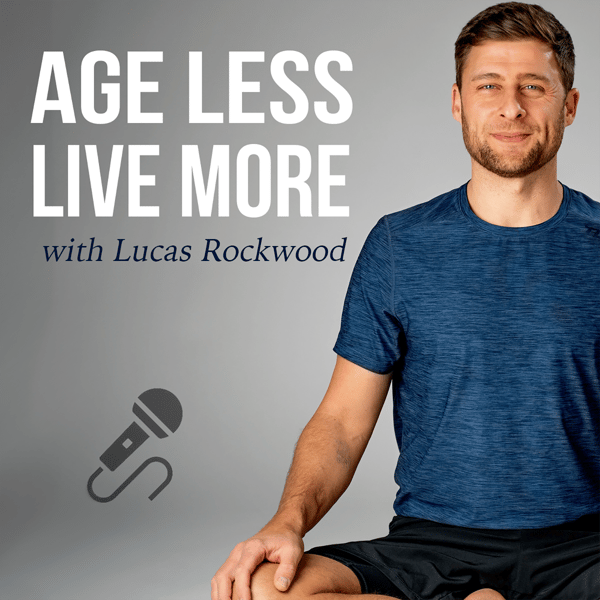513: Lasting Change: Eating & Exercise with Michelle Segar
Age Less / Live More
Lucas Rockwood
4.8 • 1.1K Ratings
🗓️ 27 April 2022
⏱️ 39 minutes
🧾️ Download transcript
Summary
New habit formation is so challenging. Not only do most of us struggle to establish new routines, we often rebel against our own best interest and go in the other direction. When we fall off a new diet regime, we then feast on junk food. When we slip up and have a drink during ‘dry January,’ we then proceed to have five more. This rebellious self-sabotaging behavior isn’t unique and psychologists have studied it extensively.
On this week’s podcast, we meet psychologist, Michelle Segar, who suggests that the solution to making healthy lifestyle changes a long-lasting habit is to focus on making smaller strides toward your goal. It’s a refreshing approach to all or nothing thinking that dooms most of us to failure.
Learn
- Why reactance behavior often drives us to rebel against rules and restrictions
- How CHAOS (Confusion, Hubbub and Order) can make sticking to new health habits more difficult
- Why it’s important to change your internal dialogue
Links
Michelle’s Site
ABOUT OUR GUEST
Michelle is a researcher at the University of Michigan who’s spent nearly thirty years studying how to help people adopt healthy behaviors. She has a doctorate in Psychology (PhD), a master’s in Health Behavior/Health Education (MPH), and a master’s degree in Kinesiology (MS). Her first book is called No Sweat, and her new book is called The Joy Choice.
Nutritional Tip of the Week
- Green Tea for Weight Loss
Like the Show?
Leave us a Review on iTunes
Transcript
Click on a timestamp to play from that location
| 0:00.0 | Habit formation is something that alludes most of us, and yet most of us have habits that |
| 0:08.2 | we do all the time. |
| 0:09.7 | You might have the healthy habit of brushing your teeth, basic hygiene, paying your bills, |
| 0:14.4 | and yet new habits, especially ones that might involve some change, like more sleep less |
| 0:19.4 | drinking, better diet, new running regime. |
| 0:23.0 | Not only do we struggle to form these new habits, even more perplexing, many of us buck |
| 0:28.1 | up against these new habits, and not only will we not follow through, we'll do the opposite. |
| 0:33.1 | So dry January turns into a weekend binge of drinking, a new diet, you fall off the |
| 0:39.0 | wagon and suddenly you're eating the worst foods possible and three times more than you |
| 0:42.6 | need. |
| 0:43.6 | And this isn't unique. |
| 0:44.6 | This isn't like a few people. |
| 0:46.5 | Many, many people experience this weird inability to establish new habits and this rebellion |
| 0:52.6 | against this change. |
| 0:54.4 | On this week's podcast, you'll meet a psychologist and a researcher and author who writes about |
| 0:59.2 | habit formation, and more specifically, how you can choose little, small, pleasant alternatives |
| 1:05.8 | to perhaps your bigger goal, and this way chip away at what you're trying to achieve |
| 1:10.1 | and ultimately maybe achieve a lot more. |
| 1:12.3 | If you're new here, it's the Lucas Rockwood show. |
| 1:14.3 | I'm a yoga teacher, a teacher trainer. |
| 1:16.0 | I'm the father of three international kids, but first and foremost, I'm a student. |
| 1:19.2 | I like to learn things, so I go into the world and I find PhDs and medical doctors and |
... |
Please login to see the full transcript.
Disclaimer: The podcast and artwork embedded on this page are from Lucas Rockwood, and are the property of its owner and not affiliated with or endorsed by Tapesearch.
Generated transcripts are the property of Lucas Rockwood and are distributed freely under the Fair Use doctrine. Transcripts generated by Tapesearch are not guaranteed to be accurate.
Copyright © Tapesearch 2025.

